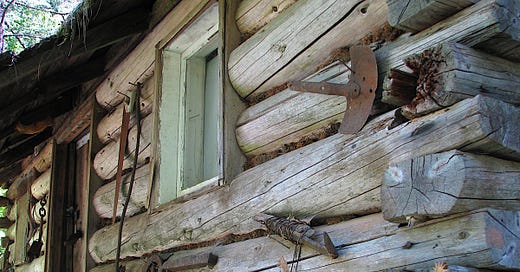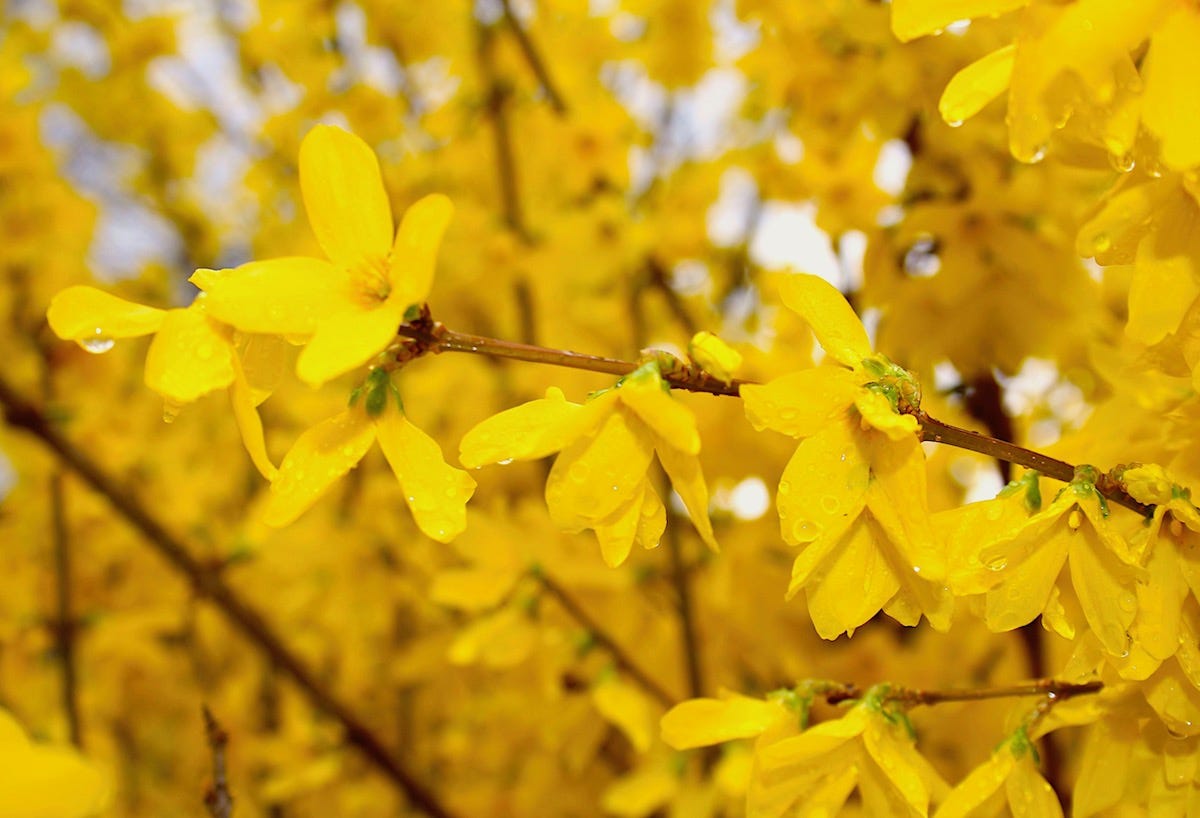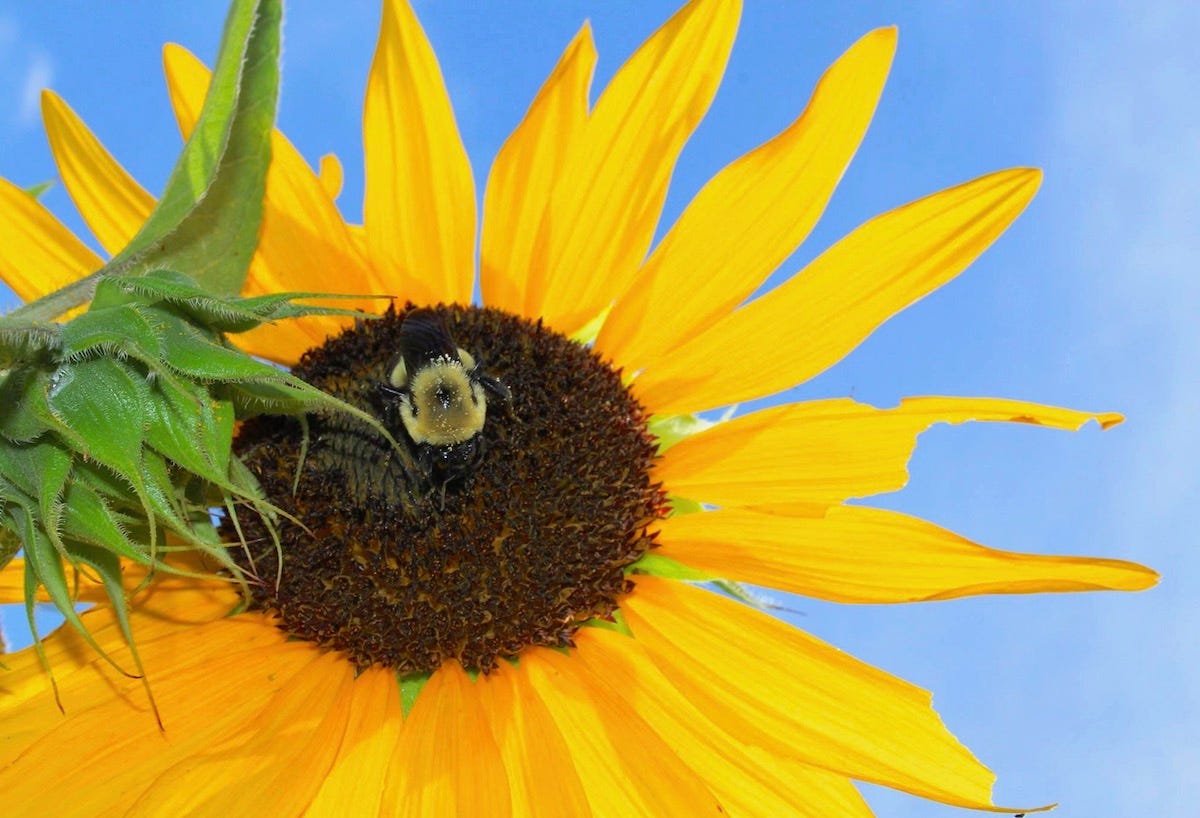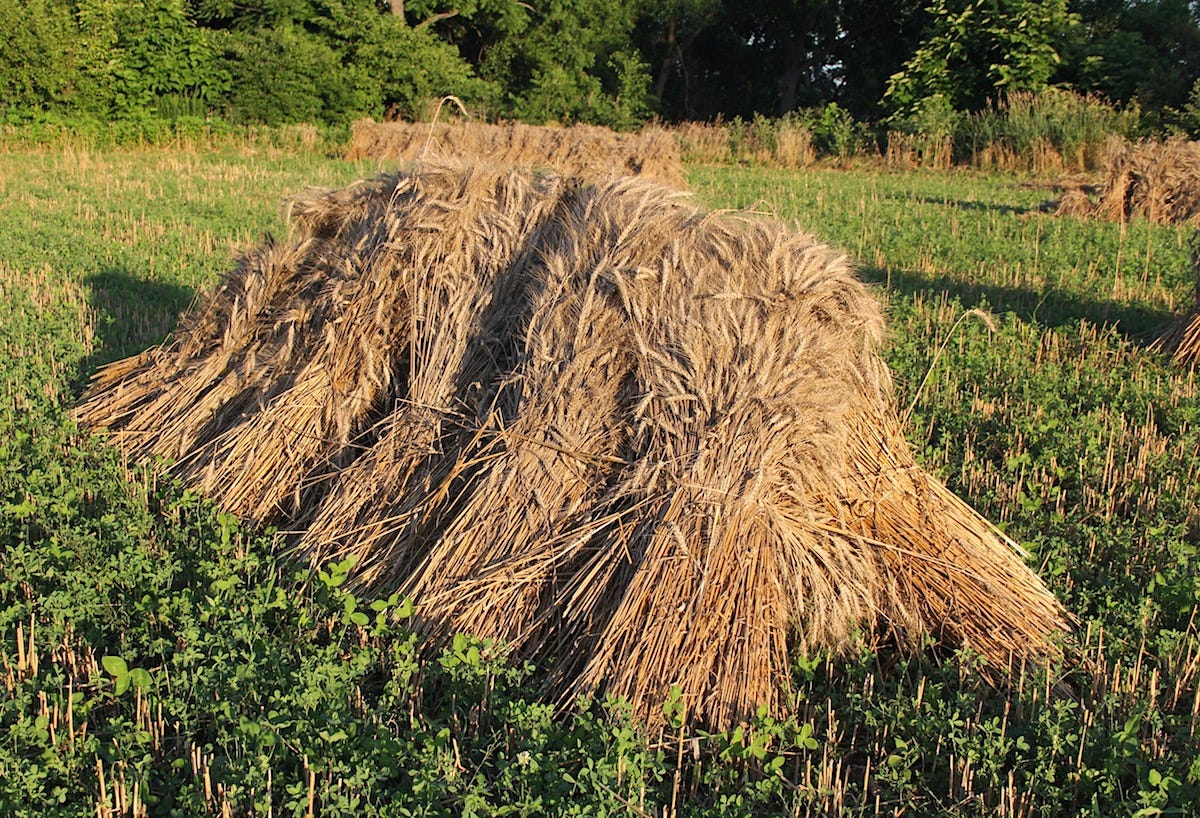Winter
The garden is frozen like the graves of those who did not survive. The empty trees and the silence of the birds are a reminder of the season. Sometimes it rains, a rain like the bitter tears of Demeter grieving her lost daughter. But mostly it snows. A lot. A little. Not enough or far too much, making the season sulky with spring feeling too far off to imagine.
The perfect fractals of snowflakes coating every surface, the familiarity of the fire, the silvery silence echoing on every white branch, on every same, snow-covered street is mesmerizing, hypnotic, numbing. The waiting is harsh, hard. The resting, unseen.
A memory twists, like the curl of smoke from the chimney, of a winter too long ago, when a dear friend died suddenly and unexpectedly. I watched, in puzzled sadness, as his mother stood by an open casket-- her grief filling the room--as she carefully embraced each of his friends, reminding us how much fun he had with us, before she placed his 16-year old body forever in the frozen ground.
Her grief is a shared one, connecting those whose children die at the hands of law enforcement, murder, accidents; shared by mothers halfway around the world whose children die as casualties of war--the sticky blanket of mothers’ grief enwrapping us all—the unwitting prey in a web we can neither see nor escape.
In the dark winter, gunshots are goodbyes. Screams echo from screens showing chalk lines on pavement and children’s mangled bodies far away. The black pavement and white sand drink too much blood. Numbers are meaningless when you know the names--each small face an unfinished story, a motionless puzzle missing most of its pieces. Mechanical voices say not to worry, they were “targets” or “collateral” or “armed.” But we have Justice. Independence. Freedom.
Awkward, rectangular photographs and dry obituaries offer a brief reminder of something that cannot be quite remembered but will never be forgotten. Each photograph asks the silent question, “Can we learn another way? Or must more of our children die?”
I ache seeing the snow on the ground, feeling the freezing air, and grasping for the remembrance of my friend’s smile. I ache too for his mother. A mother myself now, I grieve again. Deeper.
Memories are buried in the frozen ground along with the vestiges of freedom. Remnants lost somewhere between fear and complacency.
On a warm day, I visit the garden to remember peace. When I return, the dirt on my hands has turned to blood.
But perhaps, the dust that is the foundation of life is the only thing that can restore life.
With a reserved anticipation, I plan my garden, carefully choosing what I will grow—the types, the varieties, the amount. I grasp for that far-off memory of delicate growth, the full blossoms and the eventual harvest. I watch and wait, carefully counting the days, counting down, until the last frost day, straining against the impulse to plant too soon.
I wait, and endeavor to not be tired by waiting.
We plant seeds in memory of a harvest. An untouchable memory of full bellies and the far-off feel of song and laughter in sallow cheeks. I feel the echo of my friend’s laughter—too quiet now.
We plant seeds, often not quite knowing why, but rhythmically giving them the nourishment they need. Some are planted in soils likely to yield, while some are scattered on the rough edges of the unknown. We hope they will take root but we’re caught in the uncomfortable space of wondering, “if,” “when,” and “how?”
Slowly, the frustration of inaction erupts into song. A soft song, deep in my being.
A cold breeze disrupts the slanted beams that toy with the ground, breathing new life into rushing water released from its winter stillness. The locked buds on the branches show signs of stirring, almost ready for bloom. The steadfast bulbs are clasped in the ground holding their purpose as the gentle tilt of the earth shows the sun a new face; the days grow, bringing soft rains with the lengthening sunshine.
Spring
We endure the desolation of winter for the anticipated hope of spring--the quiet hope that our part of the earth will be green again—the appreciated glow of the first crocus; the robin’s breast, an inviting red against the white snow or brown-gray ground; blooming flowers accompanying the new-warm breeze and spring-cold rain as they tease each other in the polarity and tension of attraction. All made sweeter by their prolonged absence and eagerly awaited return.
Finally, the saved seeds go into the earth. Sunflowers for Harriet Tubman and the brave men and women of the Underground Railroad who gave their lives to lead others to freedom. Bitter parsley, celery and arugula for those trapped in the prisons of their minds, like my friend, that they might see Harriet’s bright sunflowers and wish to live another day. Cucumbers and peppers for Frederick Douglas and the slaves whose feet froze and cracked every night of cold captivity.
Onions, garlic and herbs for the homeless, the jobless, the hopeless, that they might know the garden is planted for them as much as anyone. Handfuls of corn, beans and hearty squashes for Chief Guwisguwi (John Ross) and the tribal leaders whose people watered the land with their tears and whose resiliency painted a rainbow in the stormy Oklahoma sky.
Watermelons and bok choi for the protectors who risk their freedom to save what’s left of our earth for future generations. Cantaloupes and honeydews for the thousands of black men lynched in the South while others looked on and laughed.
Strawberries, these sweetest of berries for the bullied, the beaten, the abused, that you see the lights left by others on their dark path and find your way back to the garden. Carrots, beets, radishes and turnips for William Harbour, Genevieve Hughes and the freedom riders for boarding a bus they didn’t know if they would exit. Chunks of potatoes for the veterans, the war-torn, the crushed, that--like this hearty root--you will last through your winter. Tiny tomato seeds for the Japanese incarcerated simply for being Japanese. Lettuces and greens, eggplant and arugula for the modern farmers torn from their lands.
Broccoli, cabbage and rhubarb for Kelly Thomas, Luis Rodriguez, Sandra Bland and every life that matters, lost from police brutality, government force or unjust imprisonment.
Lastly, and with the greatest of sadness, wildflower seeds go into the ground for the children of Afghanistan, Pakistan, Iraq, and Syria, whose small lives are extinguished by drones and bombs with American flags on them.
The still cold ground accepts the seeds--like it did a dry coffin many years ago—reluctant to the job of nurturing. She receives them with no promise--but a hope. A deep hope that perhaps this time will be different—that mothers’ children will not have to die from war, democide, fear, and greed. A hope that we can learn to nurture our communities while we cultivate the earth. A hope that we can build a better way with the ancient building blocks of mothers’ resiliency and the mortar of our compassion.
The unguarded vulnerability of the seeds holds the fullness of possibility.
The brave forsythia bush sings her bright spring welcome. Feathery green appears faintly on the tips of trees as each small seed, invisible in the feminine folds of earth, breaks its shell. Timid tendrils peek through cracked earth--hope and love taking root with them.
Now, full leaves flesh out the trees and somewhere nearby tadpoles are swimming, unaware of their own magical transformations as the very earth morphs around us. The tender flowers emerge from their hiding places, breaking the tough earth, ushering in a soft, green hope, a whispered promise of renewal and abundance, perhaps one day even, of forgiveness.
As early flowers turn their faces to the sun for the first time, so too do we, emerging from our homes to sit, walk, and talk outside, once again reveling in the light spring breeze.
My excitement grows when I see the early lettuces and spinach lift their green, flat-leafed faces up from their brown pillows. With the guarded joy of each new plant comes a measured mourning for all those who will not see the harvest.
Lasting sunlight nourishes my plants. The rain makes them flourish, along with my anticipation. I can see the way the plants kiss the air after the rain. When it rains a lot, I worry that my fragile seedlings will wash away destroyed by the very essence that gives them life. When a few days pass without rain, my fears turn to drought, dehydration and a scorching of the plants. My frivolous fears fade as I watch the plants grow. I smile at my silly pride for the brave plants.
The first strawberries elicit a childish delight and, finally, long-suppressed giggles. Each berry, like each soft life, is a gift to cherish.
The burden of loss momentarily lifted as time is suspended in the growing seeds, living in the mystery of fruition. Eons are condensed to instants depicted by the painted landscape, while bees buzz in their contented ballets--the whirring of their perfect wings a reminder of soothing sweetness.
Summer
The sun, that both threatens and sustains, almost burns my back in fifteen minutes of mulching the garden. The orange-yellow squash blossoms prove the arrival of summer—the tangible sunbeams darting down to earth parting the curtain of green. The fullness of unripe tomatoes slowly slipping into red, and the basil bunching up like clusters of teens at their first co-ed party, are clues that abundance is here.
Armfuls of lettuces, spinach, chards, kale and spicy arugula promise a glimpse of adventure in every peppery bite, while the earthy temperament of the first juicy beets tugs at a recollection of dust to dust and seeing a fleeting image of an awkward photograph.
The memory pulls at salty tears that finally don’t come. It is uncomfortable at first, what Dickenson calls the sweeping up the heart. Somehow, though, surrounded by the herbs and watermelons, with the bees already collecting their winter nectar, it feels forgivable to smile.
They are not forgotten. They are known. The breeze agrees, sending a swaying tendril to touch my naked knee as worms burrow through their soft tunnels.
The promise is full, and alive—the ground that we nourish, will comfort us in return. Winter is always past and yet, will always come. But the garden’s resilience is a mirror of my own—A measure of mothers’ fortitude everywhere. I know this now.
The dance between sun and rain, water and earth, winter and summer, is a drama too exciting, too vibrant to miss. The balance--never a conquest, always a coaxing, a longing, a loving seduction.
The soil is the heartbeat, the pulse. The animals, the plants, and the vital fungi, are the veins that bring the blood, that keep the earth alive.
The underground symphony plays every day, mesmerizing me, hypnotizing me, until hours have passed in a moment and unfinished tasks scold me from far away corners of bleak walls.
The hot days drink the saved water. As they satiate their thirst, the spring rains surround me now as melons, eggplants, peppers and greens. The squash blossoms fatten to plump, thick-skinned winter squashes boding well for the comfort of delightfully rich soups on glossy-dark nights.
Autumn
Gently, the green leaves of the forsythia are now dripping in gold, inviting a nostalgic moment. Her strong leaves are a million mirrors reflecting the sun’s fire back to itself, reflecting my resiliency back to me. The light captured in the spring, released now in a tenacious brilliance so full it cannot help but set the forests on fire.
Soon, the trees all around are awash in vibrancy—the reds, golds, oranges of the leaves whirling through the lingering greens and the burning browns. Another wave, a suggestion of spring, a whispered promise of a spring to come.
As the song of the forsythia fades, she rests now, composing herself for a new awakening. In a few short months, she must again refresh the forest, reminding us all that we are alive. That spring is here.
The potato plants, whose happy leaves waltzed to the breeze all summer, are wilting, signaling their readiness for the treasure hunt as we dig in the rich soil for every last one. Some will go in the soups; some will be baked and piled high with crunchy condiments while others will be roasted with the beets and carrots, sharing the savory sweet glaze of starchy vegetables.
The harvest offers a guilty gratitude; an apprehensive appreciation for the summer bounty. And most importantly, it offers relief. Grief sits softer now—still silent, but her sharp, lead boots dissolved somewhere in the warm summer garden.
The final veggies are harvested as leaves crunch underfoot. My fingers get cold digging for the remainder of the roots. The autumn air captures a thousand new scents all in one swift breathe.
It is time.
Time to wait again. Time to reflect on the gratitude of abundance, opportunity, and participation.
Gradually, the crispness of leaves underfoot slips into a different footfall as frost crackles atop the browning grasses. Boots cover once bare feet while scarves wrap around necks that only a few weeks before were diving into rushing water. Rivers and creeks hide something already invisible but now racing away forever to the open ocean—forgotten—or maybe just locked away under the silent ice.
The groundhog that stole nibbles from the garden all summer—gone—the fruitless patch a graveyard of summer experiences. Here, a child’s first planting, there, a lover’s kiss landed.
A few golden corn kernels dot the ground the same way fat sparkles in soup. Summer stored in each bite; each seed pregnant with summer to come.
Through the yellow and bright orange canopy, a familiar curl of smoke from a far off chimney mingles with the low clouds heavy with snow. In the hearth, a fierce red fire burns the broken and dead trees, burning memories into our beating hearts while the clear face of the moon hangs in the empty branches. Shining, glowing offering a reprieve on these dark days and long nights.
The revolution complete, it is time to let go. Time again to rest as the tiny seeds prepare for their awakening.









Liz, I thought I responded to this earlier in the year. You painted an amazing picture with your words about the seasons.
I want to personally thank you for sharing this with the world. It was so inspirational, and I could feel the your heart expressing each idea you placed into this riveting story.
Thanks so much,
Bob
Thank you for sharing this beautiful requiem, Liz. Raw milk is the tea of our revolution.